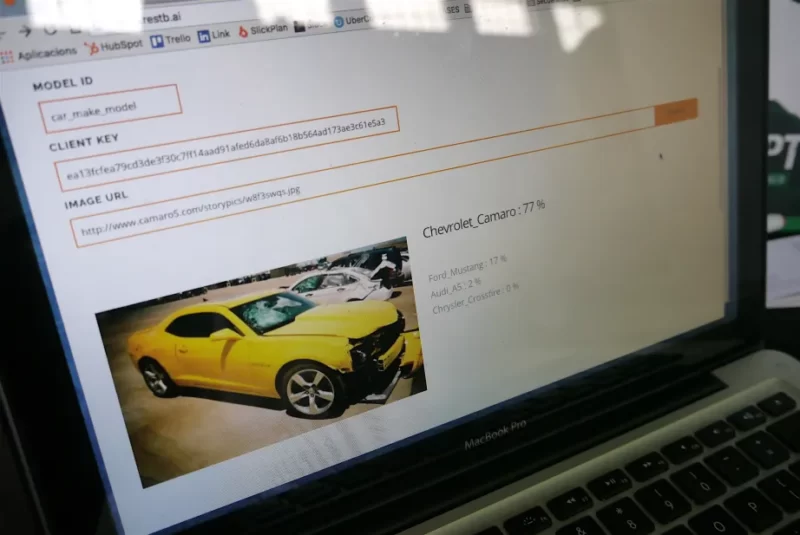Restb.ai offers custom computer vision as a service (CVaaS)
Restb.ai, a Barcelona-based B2B startup, is offering custom computer vision as a service (CVaaS) to tackle business challenges with AI. The team is offering its machine learning algorithms to businesses looking to solve specific pain points or enhance their offerings by automatically determining what is in a particular image.
Restb.ai is differentiating itself by providing CVaaS, specifically addressing the needs of businesses. This contrasts with tech giants like Facebook and Google, which leverage their own data to train AI algorithms for their own purposes. Restb.ai’s CVaaS model charges an initial training fee for building a custom model tailored to each client’s needs, followed by a fee per API call.
Restb.ai launched in March 2015 and currently has six clients. The company has focused on attracting large clients across various industries and is currently seeking seed funding.
One user of the technology is Wallapop, a second-hand goods marketplace, which has used Restb.ai to identify and prevent users from posting images of illegal drugs on their site.
Garcia, Restb.ai’s VP of Growth and Business Development, claims the accuracy of Restb.ai’s model, once trained for the client’s specific custom use, reaches 98 percent. The system functions by allowing users to input custom keywords for which the model has been trained (e.g., car make/model). The model then displays a percentage indicating its confidence in a specific identification. This process occurs in near real-time.
Garcia highlights an example of law enforcement automating cross-referencing license plates with car make/model to confirm that a license plate hasn’t been swapped onto another vehicle.

According to Garcia, the training process for each custom model takes about three weeks, while the amount of data required for AI training varies depending on the application. He states that typically, 150 to 2,000 images are needed to train for a specific custom need, with the customer providing the data. For the car example, 1,500 images were needed per car, even though the algorithm can identify a car model from a photo of just a taillight or a crashed car. It can also specify the side/view of the car depicted in the image.
Other use cases for Restb.ai’s CVaaS include real estate marketplaces wanting to identify and index photos of apartment interiors, eliminating the need for manual tagging of uploaded images and enabling better content targeting through improved image data taxonomy. Additionally, a Norwegian mining company utilizes the technology to automate and speed up the identification of specific mineral crystals, freeing up human staff for other tasks.
Garcia mentions a US competitor, clarifai, but notes they focus on general modeling, such as identifying nudity, while Restb.ai aims to differentiate itself by offering custom deployments tailored to very specific client needs.